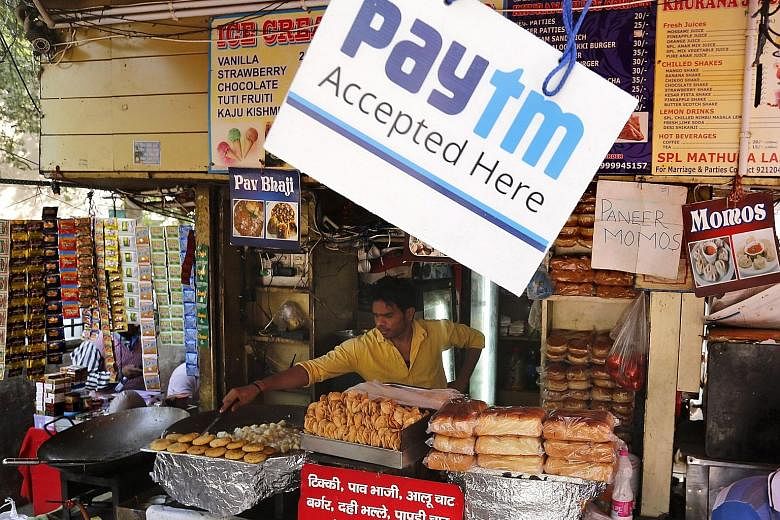MUMBAI • Indian Prime Minister Narendra Modi yesterday urged his country's small traders and daily wage earners to embrace digital- payment channels, as a cash crunch following the New Delhi government's surprise ban on high-value banknotes drags on.
"I want to tell my small-merchant brothers and sisters, this is the chance for you to enter the digital world," Mr Modi said, speaking in Hindi during his monthly address on national radio.
He urged them to use mobile- banking applications and machines for swiping credit cards.
"It's correct that a 100 per cent cashless society is not possible. But why don't we make a beginning for a less-cash society in India?" Mr Modi said. "We can gradually move from a less-cash society to a cashless society."
More than 90 per cent of consumer purchases in India are transacted in cash, Credit Suisse estimates.
Mr Modi said the government understands that millions have been affected by the ban on 500-rupee (S$10.40) and 1,000-rupee notes, which accounted for 86 per cent of currency in circulation. But he assured the country that the difficulties it has encountered will ease within his proposed 50-day period.
One of the hardest hit is India's rural economy.
For Mr Mitharam Patil, a wealthy moneylender from a small village in the Indian state of Maharashtra, life used to be good. Small-time financiers like him would typically lend cash to farmers and traders daily, providing a vital source of funding for a rural economy largely shut out of the banking sector, albeit at interest rates of about 24 per cent.
All that came crashing down on Nov 8, when the ban was announced. It has exposed the dependency of poor farmers and small businesses on informal credit systems in a country where half the population has no access to formal banking. Mr Patil was stuck with 700,000 rupees of worthless cash. He can also withdraw up to only 24,000 rupees from his account every week, barely enough for his own personal needs as he is also a farmer.
Holders of the banned bills are required to deposit them in a bank. This will help curb tax evasion and the country will start to see its benefits soon, Mr Modi told the nation.
The government says the ban is aimed at cracking down on corruption, people with unaccounted wealth and counterfeiting of notes.
In his address, Mr Modi also warned people against using the poor and their new post office bank accounts to recycle money.
While a smartphone boom and falling mobile-data prices have led to a surge in digital payments in recent years, the base still remains low. Mr Modi urged tech-savvy young people to teach others how to use digital-payment platforms.
REUTERS, BLOOMBERG

